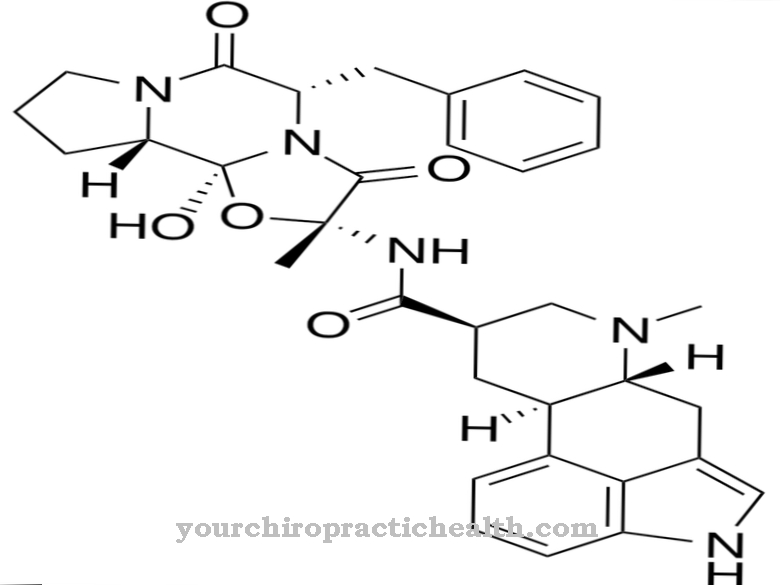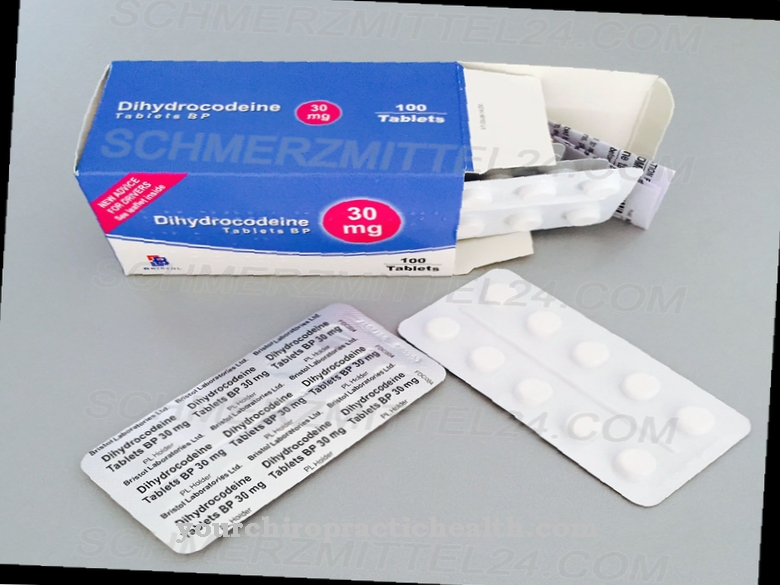Allopurinol has proven itself in the therapy and prophylaxis of elevated uric acid levels and their sequelae. The well-tolerated drug has long since become standard treatment.
What is Allopurinol?

Allopurinol is a urostatic used to treat hyperuricemia and chronic gout. It is available in pharmacies under various trade names and their generics. The prescription drug is offered as tablets of 50 or 100 pieces with 100 mg each and 20, 50 or 100 pieces each with 300 mg of its active ingredient.
The remedy is recommended for increased uric acid levels from 8.5 mg / 100 ml in the blood serum of adults, if attempts to lower them remain unsuccessful or if another disease is the cause. In addition to reducing uric acid, allopurinol relieves the unpleasant symptoms of gout.It is suitable for long-term treatment under constant medical supervision.
In children, doses below 300 mg of allopurinol are indicated for diseases such as leukemia or a congenital enzyme deficiency such as Lesh-Nyhan syndrome.
Pharmacological effect
Allopurinol already has its active ingredient in its name. It belongs to the group of gout drugs. Treatment with allopurinol is said to reduce elevated uric acid levels in the blood serum. If this succeeds, the pain associated with acute gout attacks is also reduced as a result. Further gout attacks are prevented.
The exact mode of action is based on a breakdown of the purines, mainly organic compounds found in proteins. Some of them arise in the body, some of them are supplied with carnal food. The human organism usually breaks down purines into uric acid and excretes them through the kidneys. Allopurinol prevents this purine breakdown by inhibiting the essential enzyme xanthine oxidase. While uric acid is sparingly water-soluble, the administration of allopurinol, which reduces uric acid, instead forms more of its precursor, hypoxanthine.
In contrast to uric acid, this is readily soluble in water. This leads to the desired decrease in the increased uric acid concentration in the blood (hyperuricemia). In the tissue, deposited urate crystals that cause typical gout complaints are broken down and their regeneration is delayed. Unlike uric acid, the body can easily release hypoxanthine in the urine through the kidneys. It has been shown that allopurinol limits the formation of new purines in addition to purine breakdown in some patients.
Nevertheless, in the case of renal insufficiency, the administration of allopurinol must be adapted to the reduced capacity of the kidneys. In the case of an acute attack of gout, administration of allopurinol should be avoided, as it affects the solubility of uric acid. Uric acid crystals can form, which intensify or prolong the attack of gout.
Medical application & use
Allopurinol has proven itself in the treatment of adults and children and is generally well tolerated. It helps to reduce elevated uric acid levels in the blood of more than 8.5 mg / dl, which occur mainly in hyperuricemia and gout.
If a change in diet does not bring any improvement, allopurinol is recommended, also for long-term treatment. It can also be used excellently for the prevention of acute gout attacks and their painful side effects. Further areas of application are the avoidance of kidney stones and the resulting damage to the kidney tissue.
Children can suffer kidney damage during leukemia treatment, as the breakdown of tumor cells goes hand in hand with an increased production of purines. Allopurinol given prophylactically counteracts the negative processes it triggers. Allopurinol is also often prescribed for congenital hereditary diseases such as Lesch-Nyhan syndrome, which already leads to gout in children, or for adenosine phosphoribosyl transferase deficiency.
Important to know: In the case of an initial treatment with allopurinol, noticeable success is usually a long time coming, as it can take up to six months for the uric acid deposits in the tissue to break down. Furthermore, the allopurinol therapy should start gradually.
Risks & side effects
Even a proven drug like Allopurinol has risks and side effects. Allergic reactions, especially of the skin, as well as headache, dizziness, drowsiness, nausea and vomiting, can occur, as well as blood formation disorders, lymph node swelling, kidney stones, liver damage and neuropathy.
Allopurinol is contraindicated or used with increased caution in cases of impaired kidney or liver function and certain blood formation disorders. It should also not be given during an acute attack of gout.
Allopurinol can interfere with driving and using machines.
There is hardly any experience with the use during pregnancy and breastfeeding. To be on the safe side, it is not recommended to take it during these phases.



























